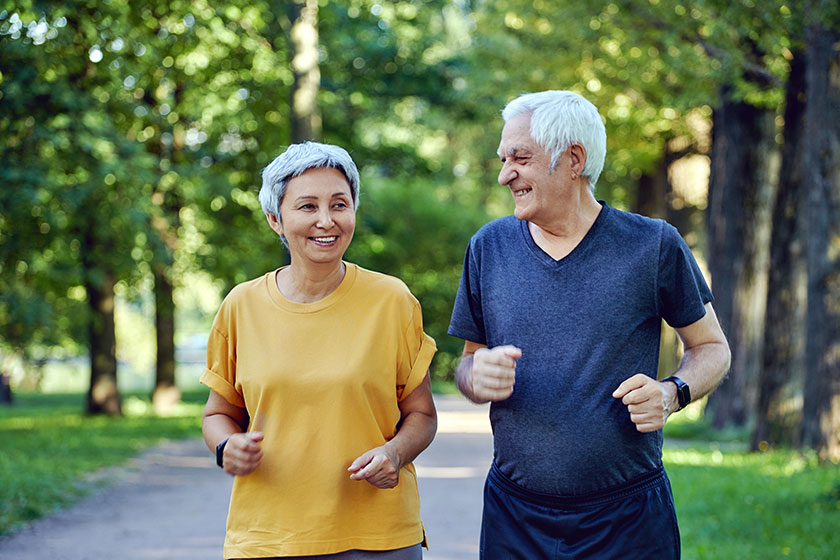Knowing the best time to exercise can greatly impact how effective it is for older adults. Exercise for seniors is not only about staying active but also about maintaining health and improving quality of life. Different times of the day offer varied benefits, and choosing the right time can enhance energy levels, physical performance, and overall well-being. Identifying when older adults should exercise depends on personal needs, age-related changes, and medical conditions. It’s important to recognize how timing influences these aspects to make the most of each workout.
Morning Exercise Benefits Older Adults’ Energy and Alertness
Morning exercise can help older adults start their day with increased energy and alertness. Physical activity in the early hours stimulates blood flow and raises body temperature, making the body feel more awake. Many older adults report feeling more energetic throughout the day after a morning workout. This boost in energy can also improve concentration and mood, setting a positive tone for the rest of the day. Morning exercise may also help in developing a consistent routine, which can lead to better long-term health outcomes.
Afternoon Workouts Enhance Physical Performance and Strength
Older adults who prefer afternoon exercise may notice improved physical performance and strength. During this time, the body temperature naturally rises, which can enhance muscle function and flexibility. Afternoon workouts are ideal for activities that require more strength or endurance, such as resistance training or walking. These types of exercises can also improve cardiovascular health, build muscle, and reduce the risk of injuries. For those looking to improve physical performance, the afternoon may be the best time for more intense or strength-focused exercises.
Evening Exercise Helps with Relaxation and Sleep
Exercising in the evening can promote relaxation and better sleep quality for older adults. Engaging in light activities such as stretching, yoga, or walking helps relax the muscles and calm the mind. These exercises can lower stress levels and prepare the body for rest, which may result in deeper and more restful sleep. However, it’s important to avoid vigorous exercise too close to bedtime, as it may have the opposite effect. Evening workouts that focus on relaxation can be an effective way to unwind and improve overall sleep quality.
Consistency in Exercise Routine Promotes Health for Older Adults
Maintaining a consistent exercise routine is key to promoting long-term health for older adults. Whether exercising in the morning, afternoon, or evening, the regularity of activity is what contributes most to health benefits. Consistency helps improve cardiovascular health, strengthens muscles, and boosts energy. Those who stick to a regular schedule are more likely to see improvements in mobility, strength, and endurance. A consistent routine also reinforces habits that make it easier to maintain an active lifestyle, which is vital for healthy aging.
Personal Preferences Determine Optimal Time for Exercise
The best time for older adults to exercise often comes down to personal preference. Some may feel more energized in the morning, while others may prefer afternoon or evening activities. Finding the right time for exercise that aligns with an individual’s energy levels, daily routine, and lifestyle is important for long-term success. Those who enjoy their workout time are more likely to stick with it, which contributes to a healthier lifestyle. Personal preferences, when combined with the right type of activity, make exercise more enjoyable and effective.
Age-related Factors Influence Best Time for Exercise
Age-related factors such as mobility, energy levels, and flexibility can influence the best time for older adults to exercise. As the body ages, it may take longer to feel fully awake or flexible in the morning, while the afternoon may bring more strength. On the other hand, some may feel too tired to exercise in the evening. Adjusting exercise routines based on how the body responds throughout the day can make a significant difference in effectiveness and enjoyment. Listening to the body and its needs is critical for choosing the right time to exercise.
Medical Conditions Affect Timing of Workouts for Older Adults
Medical conditions can also affect when older adults should exercise. For those managing chronic health issues like arthritis, diabetes, or cardiovascular concerns, the timing of exercise may need to align with medication schedules or symptom patterns. For instance, mornings may be challenging for those with joint stiffness, while afternoons may be better for more comfortable movement. Consulting with a healthcare provider can help determine the best time for physical activity, ensuring safety and optimizing the health benefits of exercise.
Join Our Retirement Community’s Engaging Senior Living Community Events
Our retirement community is dedicated to promoting health and well-being through thoughtfully planned activities. We encourage residents to participate in our senior living community events, which are designed to support an active lifestyle with flexible exercise routines that fit personal needs and preferences. Our team creates a supportive environment where you can enjoy staying active, whether in group settings or individual workouts. At our retirement community, we focus on providing options that meet your unique health and wellness needs, ensuring that your experience here is both enjoyable and fulfilling.







